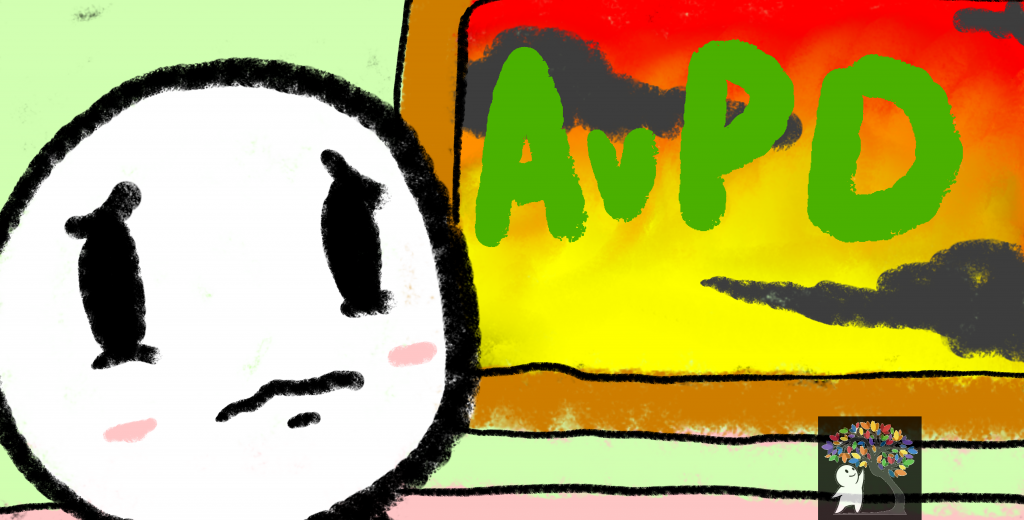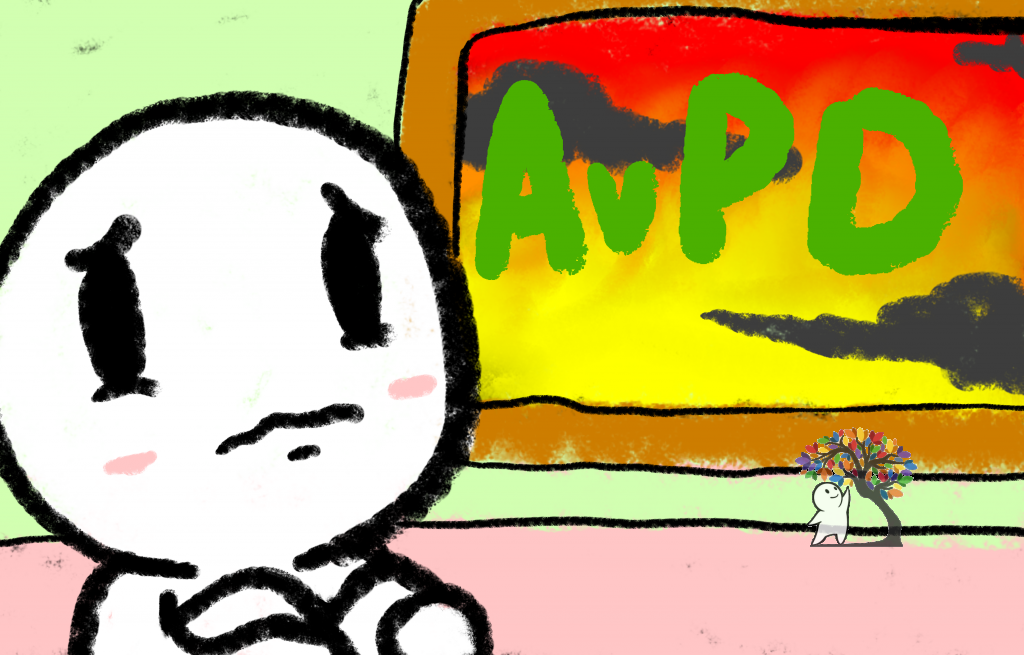6 Signs of Avoidant Personality Disorder

Hi there Psych2Goers, this is a disclaimer that this article is for informative purposes only. It is not intended to treat, diagnose, or prevent any condition. If you are struggling, please reach out to a qualified healthcare practitioner or mental health professional.
Shyness is pretty common. We all can think of someone, maybe even ourselves, that may be shy and introverted. This isn’t necessarily a bad thing and we can often live a normal life. However, what happens if the shyness is so intense, that we shut ourselves out from the world? What if we fear criticism and disapproval from others so much, that we limit what we can do? This is often the case with Avoidant Personality Disorder. To help better understand this condition, in this article, we’ll be exploring six signs of AvPD.

What is Avoidant Personality Disorder?
Avoidant Personality Disorder (AvPD) is known as a Cluster C personality disorder. These disorders revolve around anxious thinking and behavior. It is far beyond just being shy and impacts someone in every aspect of their life (Mayo Clinic 2016). They may have difficulty forming and maintaining relationships as well as stepping out of their comfort zone. The disorder can be comorbid with other conditions such as anxiety and depression, which can result from social isolation and fear of rejection. It is believed to have roots in childhood and can be affected by genetics and environment (Kimmel 2018).

Please note that AvPD varies from person to person. Someone with the condition may feel all, some, or differing than what is listed here.
1. Intense Fear of Rejection
One of the biggest signs of AvPD deals with rejection. While disliking and fearing rejection is relatively common, AvPD takes this to a new level. You may find yourself going to great lengths to avoid rejection. This affects every aspect of your life, especially your relationships and work life. You may also be extremely sensitive to criticism and perceive situations as negative despite the contrary. This can be so severe to the point that you prefer isolation over the possibility of getting rejected (Psychology Today 2019).

2. Lack of Close Relationships
The intense fear of rejection can cause difficulties in forming relationships. You may find yourself avoiding others at all costs unless you know that you’ll be accepted. You might even find yourself avoiding people you see on a regular basis like coworkers. Even in relationships, you may fear intimacy and push others away. Interacting with others can be difficult and intimidating, so you prefer to stay away from it, thus you limit your social network (Grohol 2020).

3. Avoids Risk Taking
People with AvPD have a tendency to avoid risks or anything that might result in failure. Failure can be embarrassing which is something that can open the door to rejection and ridicule. This limits you in what you are willing to do, which makes it hard to gain new experiences. This can extend to work situations as well. You may turn down opportunities for promotion or job changes due to fear that you might do something wrong. Earning any kind of disapproval is a scary thought, so you try to limit it as much as possible (Cuncic 2020).

4. Excessive Shyness
Wanting to avoid other people at all costs often leads to social isolation. Meeting new people can be stressful and unappealing. Even talking with others that you do know can be difficult as it opens the door to potential disapproval. When with others, you can find that your thoughts are loud and overpowering, often negative and putting you down. You might prefer to stay inside than go out with others, even if that’s an activity you think would be fun. The fear of rejection takes over and impacts your decisions (Kimmel 2018).

5. Low Self-Esteem
People with AvPD often feel a level of inadequacy. You might compare yourself to others and feel unworthy. You can also feel socially inept due to limited social interaction and your constant self-criticism. Self-esteem problems make it even harder to interact with others and can cause you to become even more isolated (Cuncic 2020).

6. Avoids Conflict
AvPD revolves around fearing disapproval and rejection. Thus, you may notice that you avoid conflict at all costs. “People pleasing” is very common and can lead to issues. You might settle for less and get involved in undesirable situations so that you can avoid disapproval. This can also cause issues in other areas as you can find yourself unable to make decisions when other people are involved (Cuncic 2020).

While many of us can relate to being shy or knowing someone that is, AvPD is much more than that. It is difficult to live with and opens the door to a slew of other issues. It is important to know that this condition can be treated and it often takes getting in contact with the right professional to drastically improve your life. What are your thoughts on AvPD? Are there any signs that we missed? What are some of your experiences? Let us know in the comments!
References:
- Cuncic, A. (2020, July 18). What Is Avoidant Personality Disorder? Verywell Mind. www.verywellmind.com/avoidant-personality-disorder-4172959
- Grohol, J. P. M. (2020, January 14). Avoidant Personality Disorder. Psych Central. psychcentral.com/disorders/avoidant-personality-disorder/
- Kimmel, R. (2018, October 7). Avoidant personality disorder. MedLinePlus. medlineplus.gov/ency/article/000940.htm
- Kivi, R. (2017, April 20). Avoidant Personality Disorder. Healthline. www.healthline.com/health/avoidant-personality-disorder
- Mayo Clinic. (2016, September 23). Personality disorders – Symptoms and causes. www.mayoclinic.org/diseases-conditions/personality-disorders/symptoms-causes/syc-20354463
- Psychology Today. (2019, February 26). Avoidant Personality Disorder. www.psychologytoday.com/us/conditions/avoidant-personality-disorder



Responses